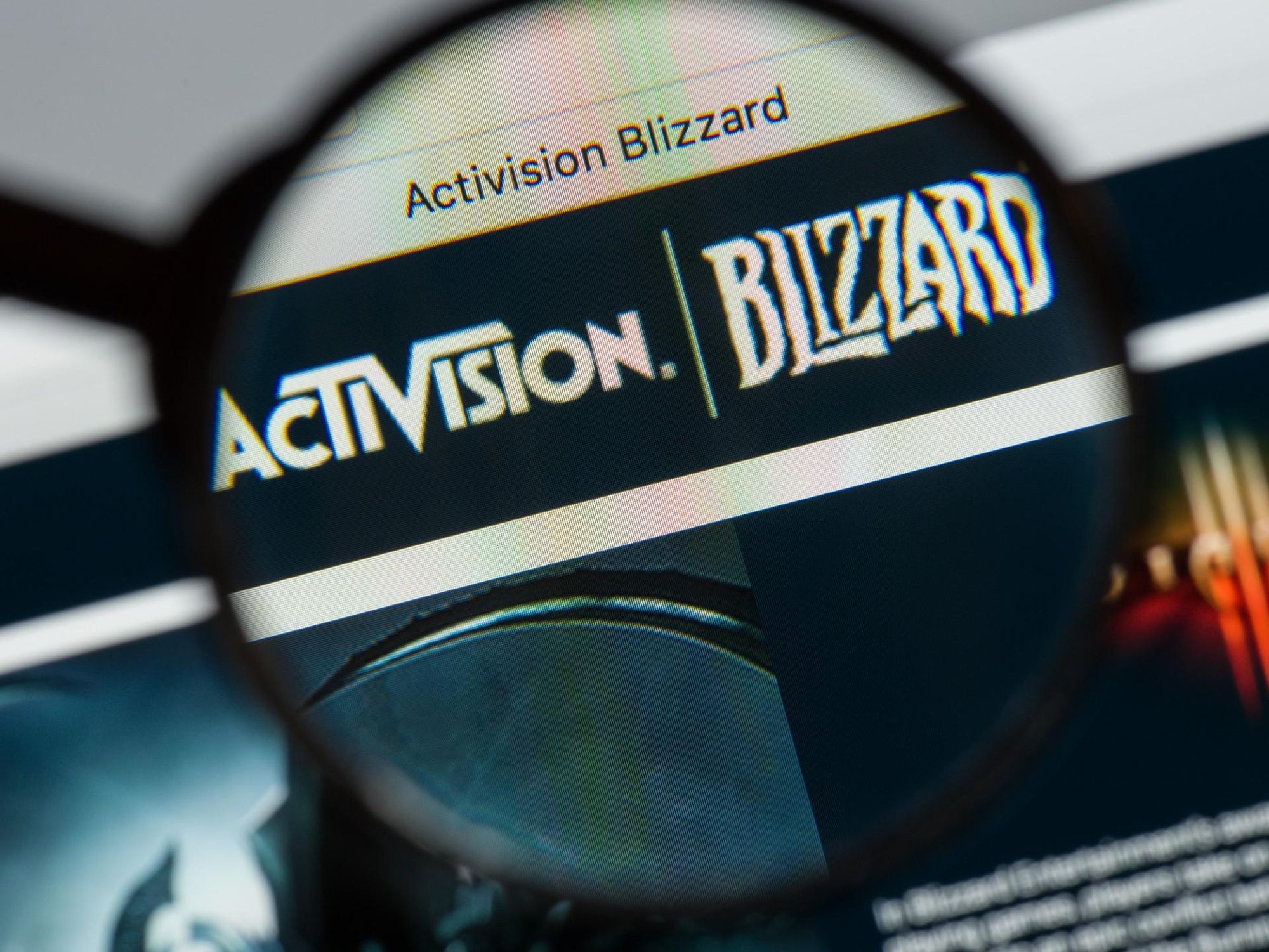Activision Blizzard Workers Win Union Vote
Samson Amore is a reporter for dot.LA. He holds a degree in journalism from Emerson College. Send tips or pitches to samsonamore@dot.la and find him on Twitter @Samsonamore.

Workers at Activision Blizzard subsidiary Raven Software won their labor union vote today—a move that certifies the first union at a major video game publisher in the U.S., and one that could potentially transform the Santa Monica-based game developer that Microsoft is paying $69 billion to acquire.
Twenty-two employees at Wisconsin-based Raven voted 19-to-3 in favor of ratifying their Game Workers Alliance union in a National Labor Relations Board-sponsored election on Monday. The Raven workers—who do quality assurance testing for popular Activision titles like “Call of Duty”—formed the Game Workers Alliance in January and proceeded with the vote after Activision refused to voluntarily recognize the union.
The vote marks the first time that employees at a AAA game publisher in the U.S. have successfully unionized their workplace. It could also be a key step toward unionizing the rest of Activision’s 10,000-person workforce—something that Raven labor organizers told dot.LA earlier this year is part of their larger plan.
“We respect and believe in the right of all employees to decide whether or not to support or vote for a union,” Activision spokesperson Talia Ron told dot.LA in an email Monday. “We believe that an important decision that will impact the entire Raven Software studio of roughly 350 people should not be made by 19 Raven employees.”
None of Activision’s major competitors, such as West Los Angeles-based Riot Games, have unionized employees. Across the entire video game industry, only indie studio Vodeo Games has a labor union—one which became the first certified game workers’ union in North America last year.
“This is a huge win for not only the gaming industry but AAA gaming, because this is the first studio you're seeing out of a AAA [publisher] actually unionizing,” labor organizer and former Activision quality assurance tester Jessica Gonazlez told dot.LA.
Pro-union Activision employees have long felt that an organized workplace could provide the muscle they need to address issues that have plagued the company and their industry at large—from long, grueling work hours to sexual harassment and discrimination. “I'm very, very hopeful that this is going to be part of a larger wave of unionizing in the video game industry as a whole,” Gonzalez added.
While Microsoft executives have said that the Seattle tech giant won’t stand in the way of union efforts at Activision, the game developer has taken steps perceived as anti-union among its workers—such as leaving Raven Software employees out of a pay bump for quality assurance testers and proposing contract language that would prevent workers from organizing. Raven workers began organizing after walking off the job in December in protest of Activision’s decision to lay off 12 quality assurance contractors.
In a statement, Sara Steffens, secretary-treasurer for the Communications Workers of America labor union backing Raven’s Game Workers Alliance, said “Activision did everything it could, including breaking the law, to try to prevent the Raven QA workers from forming their union.”
“Quality assurance workers at Raven Software are bringing much-needed change to Activision and to the video game industry,” Steffens said. “At this critical time for the company and its employees, these workers will soon have an enforceable union contract and a voice on the job.”
- Labor Union Urges SEC to Investigate Activision Over Filing - dot.LA ›
- Activision Leaves Union Workers Out of Game Testers' Pay Raise ... ›
- Microsoft Says It Won't Block Activision Labor Unions - dot.LA ›
- Activision Workers in LA Send List of Demands to Management - dot.LA ›
Samson Amore is a reporter for dot.LA. He holds a degree in journalism from Emerson College. Send tips or pitches to samsonamore@dot.la and find him on Twitter @Samsonamore.



 Image Source: Revel
Image Source: Revel
